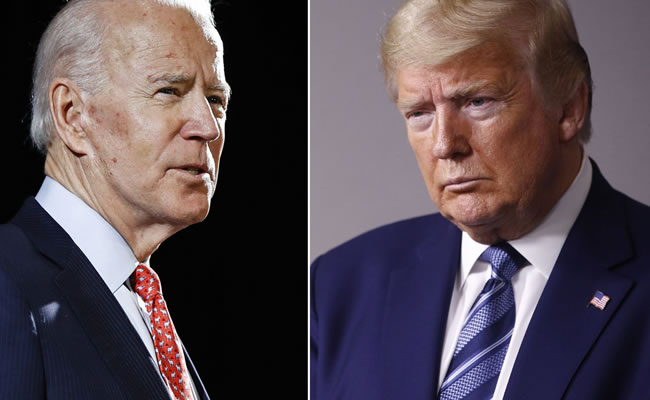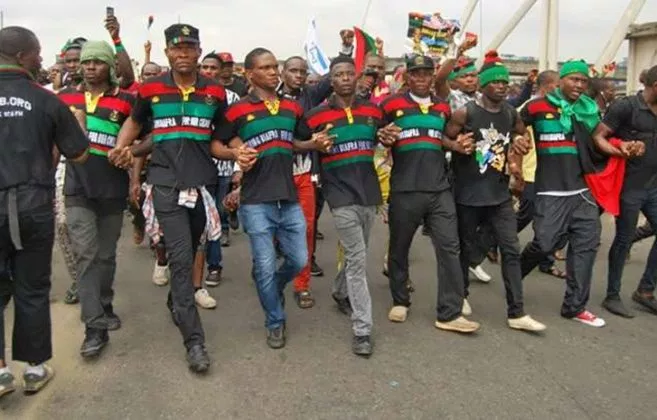Nigeria Immigration Service arrests Bobrisky at Seme border

. Popular social media personality enjoyed affluence in prison – Report
By Ukpono Ukpong
The Nigeria Immigration Service (NIS) has confirmed the interception of popular social media personality, Idris Okuneye, also known as Bobrisky, at the Seme border while attempting to leave the country.
According to a statement released by the Service Public Relations Officer, Kenneth Udo, the NIS acted in line with its mandate to secure Nigeria’s borders.
Bobrisky, described as a “person of interest,” was reportedly trying to exit the country when immigration officers stopped him. “He is undergoing interrogation and will be handed over to the appropriate authorities for further action,” the statement read, though specific details of the public concerns linked to Bobrisky were not disclosed.
The NIS emphasised that it remains committed to maintaining professionalism and civility in the discharge of its duties, especially in safeguarding Nigeria’s borders. The Service assured the public that it would continue to fulfill its statutory responsibilities while ensuring that due process is followed.
READ ALSO: I was 25% deaf without knowing it – Obasanjo
The interception of Bobrisky has drawn attention, given the celebrity’s ongoing legal issues, and the NIS is expected to provide further updates as investigations proceed.
Meanwhile, an investigative report has revealed that popular Nigerian celebrity Idris Okuneye, also known as Bobrisky, enjoyed special privileges during his imprisonment in a Nigerian correctional facility.
The report, submitted by an Independent Investigative Panel, highlights Bobrisky’s affluence while in custody, sparking concerns about corruption and unequal treatment of inmates.
The panel, inaugurated on September 30, by the Minister of Interior, Hon. Dr. Olubunmi Tunji Ojo, was tasked with investigating allegations of corruption, abuse of power, and human rights violations within the Nigerian Correctional Service (NCS).
The interim report focused on the treatment of specific inmates, including Bobrisky, and uncovered irregularities that have cast doubt on the integrity of the correctional system.
According to the report, Bobrisky, who was sentenced to six months’ imprisonment with one-third remission, was transferred between multiple custodial centres during his incarceration.
The report noted that Bobrisky began his sentence at the Ikoyi Custodial Centre on April 12, 2024, before being moved to the Medium Security Custodial Centre in Kirikiri and later to the Maximum-Security Custodial Centre. However, the report found that these transfers were not properly documented until months later, a violation of correctional service regulations.
“The findings of the Panel thus far show the following: The Panel did not find any evidence thus far that suggested that Mr. Idris Okuneye slept outside the Custodial Centre during the period of his imprisonment which was from April 12, 2024 to August 5, 2024 which is 6 Months correctional sentence with the usual 1/3 remission.
“During this period, he was transferred from Ikoyi Custodial Centre to Medium- Security Custodial Center Kirikiri Apapa Lagos on April 12, 2024 and on April 22, 2024 from Medium Security Custodial Centre Kirikiri to the Maximum-Security Custodial Centre from where he was discharged after completion of his sentence on 5 August 2024.
“The decisions to transfer Mr. Okuneye Idris Olanrewaju from Ikoyi Custody Centre Lagos to the Medium Security Custodial Centre Kirikiri Lagos on the April 12 and from the Medium Security Custodial Centre Kirikiri Lagos to the Maximum-Security Custodial Centre Kirikiri, Lagos on April 22, were made by Mr. Ben Rabbi – Freeman, who was then the State Controller Lagos State Command. He is the current Assistant Controller General of Corrections (ACG) Zone ‘A’.
“The State Controllers of Corrections have the power by law to transfer an inmate from one custodial centre to another within the same State. Proper documentation of Okuneye Idris was not made prior, or as he was being transferred from Ikoyi Custodial Centre to Medium Custodial Centre, and from Medium Custodial Center Kirikiri Apapa Lagos to the Maximum Custodial Centre Kirikiri Apapa, Lagos. The documents were later provided on September 28 and backdated to April 12 and April 22, respectively. These are violations of section 168 and 169 of the Nigerian Correctional Service Standing Order Custodial. The transfer of Mr. Okuneye Idris from the Medium Security Kirikiri Lagos to the Maximum-Security Kirikiri, Lagos being a first offender, violated section 16(4)(a) and (b) of the Nigerian Correctional Service 2019.”
The panel revealed that Bobrisky was given unusual privileges during his time in prison. These included a specially furnished single cell with a humidifier, floor rugs, a fridge, and a television.
The report suggested that these privileges might have been financially motivated, raising concerns about corruption within the correctional service. The panel expressed the need for clear guidelines to prevent the unequal treatment of inmates based on socio-economic status.
“The Panel also found that Mr. Okuneye Idris enjoyed several privileges while in custody both at the Medium-Security and the Maximum-Security Custodial Centres which include specially furnished single cells, humidifier, lots of visitation by his family members and friends as he desired.
“Visits by his family members and friends held inside the office of the in-charge of the custodial centre, floor rug, self- feeding, designated inmate to run errands for him, access to fridge and television, and possibly access to his phone. It is necessary to further investigate if the above privileges provided for Okuneye Idris were financially motivated and based on corrupt practices by correctional officers.
“The panel believes that the peculiar case of the inmate and the inmate’s physical look and behaviour poses a threat and the lack of laid down rules for the treatment of such a case may have necessitated such privileges to be granted to Okuneye Idris.
“The Panel recommends that clear guidelines need to be set up to guide operations regarding such incidents in future. Steps should be taken to avoid the obvious discriminatory practices in relation to the socio-economic levels and other status of inmates.”
In another case mentioned in the report, the panel confirmed that Abdulrasheed Maina’s son made financial transactions to the personal account of Deputy Controller of Corrections (DCC) Kelvin Iloafonsi Ikechukwu at Kuje Custodial Centre. This was allegedly done for Maina’s health and welfare needs, but the panel condemned the action as unethical and against institutional regulations.
“DCC Kelvin Iloafonsi Ikechukwu acted unethically and brought himself and the Nigerian Correctional Service to great disrepute,” the report stated, recommending disciplinary action against the officer. It added that all correctional officers should receive proper training before taking on sensitive roles to prevent such violations in the future.
The panel also highlighted widespread corruption and unethical behaviour within the correctional service, stating that the issues were systemic and required immediate reform. The report pointed to poor funding and inadequate welfare for correctional officers as contributing factors to the commercialization of inmate services. It noted that under these conditions, officers were more likely to engage in corrupt practices.
“Several allegations of systemic corruption, indiscipline, and other unethical behaviors were found across the various cadres and formations of the Nigerian Correctional Service,” the report observed.
The panel recommended that the government improve the welfare and working conditions of correctional officers to reduce the incentives for corruption.
The investigation into Bobrisky’s treatment and the other findings in the report has prompted calls for urgent reforms within the Nigerian correctional system. The panel emphasised the need for stricter oversight and accountability to ensure that all inmates are treated equally, regardless of their social or financial status.
As part of its recommendations, the panel urged the government to introduce clear guidelines for handling high-profile inmates like Bobrisky, whose presence in custody could potentially disrupt the normal operations of the facility.
“The peculiar case of the inmate and the inmate’s physical look and behavior posed a threat, and the lack of a laid down rule for the treatment of such a case may have necessitated such privileges,” the panel explained.
The report also recommended that correctional officers with integrity and good character be assigned to head custodial centres, particularly those with large or high-profile inmate populations. It called for public hearings and the submission of memoranda from stakeholders to address the systemic issues plaguing the correctional service.








